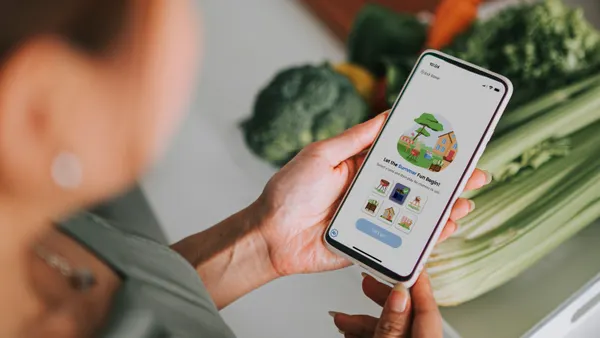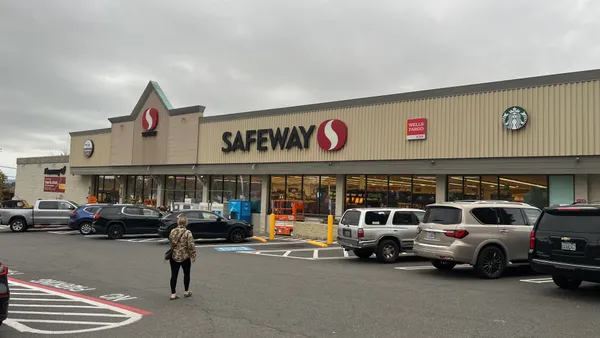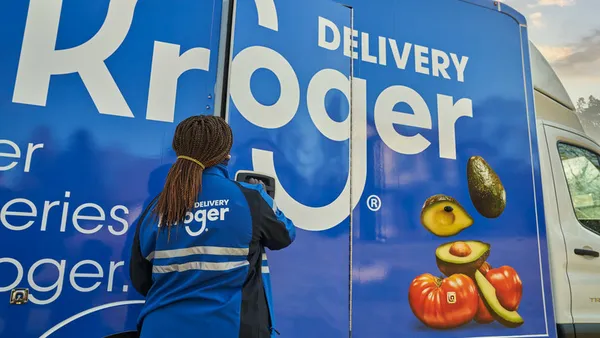Dive Brief:
- After a year of disruption, consumer habits prompted by the pandemic, like stockpiling cleaning supplies and household essentials, will likely stick around post-pandemic, according to a new report from Instacart published on Tuesday.
- The report, which compiled results from a survey of 2,038 adults in the U.S. by The Harris Poll, as well as Instacart data, found that 51% of respondents are making sure they have extra hand sanitizers, hand soap or disinfectant wipes and 39% said they don’t want to run out of essentials like batteries, toilet paper, and paper towels.
- Price is also top of mind for consumers, with 36% saying that they’ve learned how to save money on groceries in the past year. Going forward, Instacart predicts the increased interest in promotions and coupons in 2020 will continue as U.S. consumers deal with the pandemic’s economic fallout.
Dive Insight:
The pandemic has shifted consumer habits enough to significantly alter what grocery shopping will look like post-pandemic, according to Instacart’s report.
The e-commerce technology company's findings predict that online grocery shopping has provided households greater flexibility regarding who places orders and when they arrive. For example, Instacart foresees that the days of a household dedicating one person as the primary shopper are over and that shopping on the weekends is no longer required due to many industries offering flexible work schedules and remote work. Instacart’s purchasing data has found that shoppers this year are already ordering more during weekdays and earlier in the day.
The boom of senior shoppers that Instacart saw in 2020 is a trend the company expects to continue, as well, with both seniors and people assisting them placing online orders. The report noted that the use of Instacart’s Senior Support Service, which it rolled out late last year, has been growing by roughly 1,000 seniors per day. Younger shoppers are also using Instacart more for snacks and meals and have become used to grocery shopping for older family members during the pandemic.
Other 2021 trends the report identified include an emphasis on health and wellness, with 36% of respondents saying they plan to keep focusing on eating healthier food now that they have learned new shopping habits and how to cook in the past year. That prediction aligns with Instacart’s report published in December, also based on a survey by The Harris Poll, that found that sales for alcohol-free spirits were up 195% and sales of items marketed as "Keto" were up 72% from 2019.
Speed also matters to consumers, with Instacart predicting that most shoppers will want their online orders within two hours or less. The company noted that 95% of small Instacart orders were delivered in under two hours and 50% in less than one hour in 2020.
For Instacart, 2020 was a year of growth in not only its grocery delivery business but also in broadening the variety of retail partners, which now includes retailers like Best Buy, Dick’s Sporting Goods and the Disney Store. The company also saw Silicon Valley veterans join its ranks ahead of a reported initial public offering.











